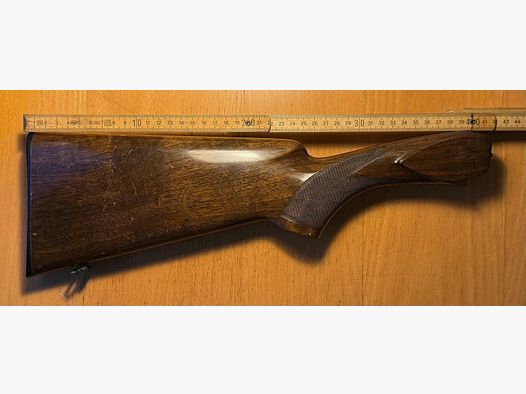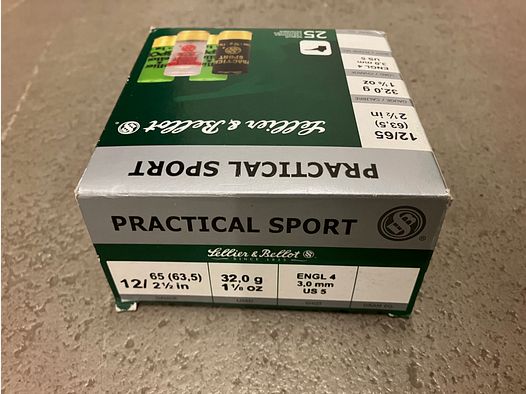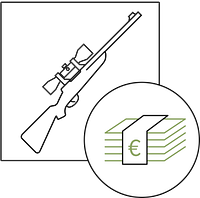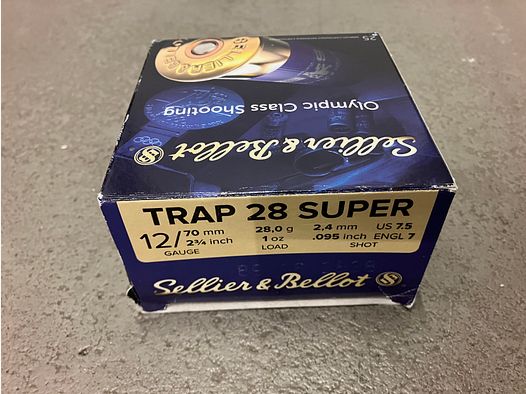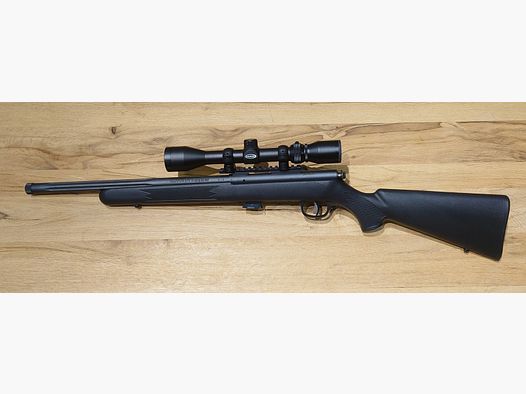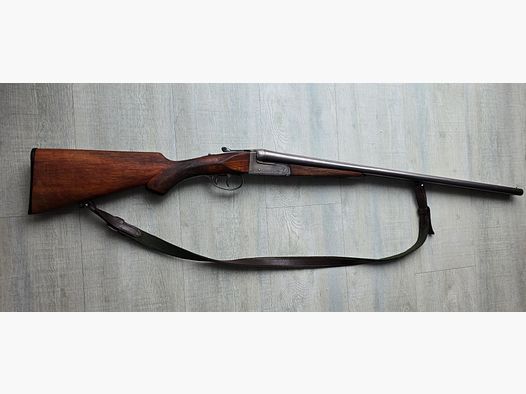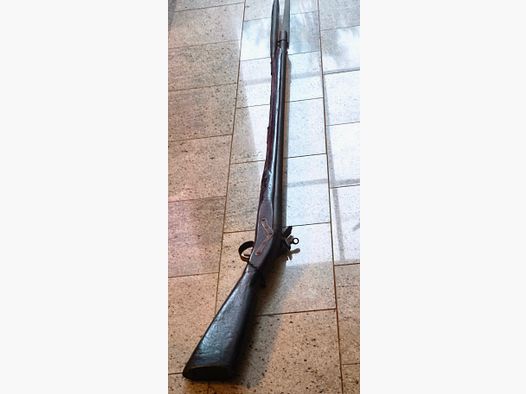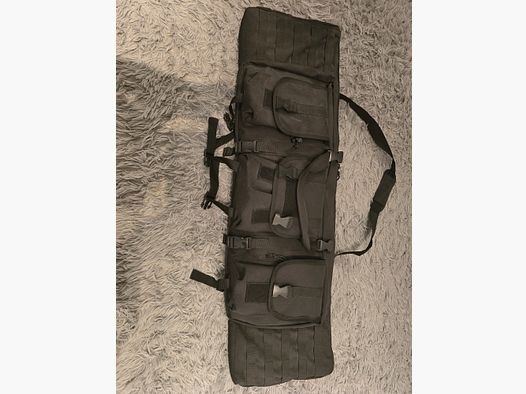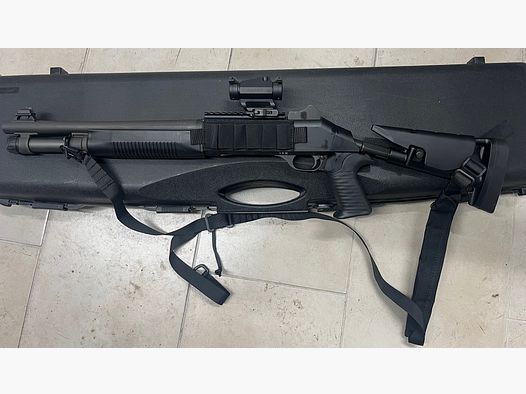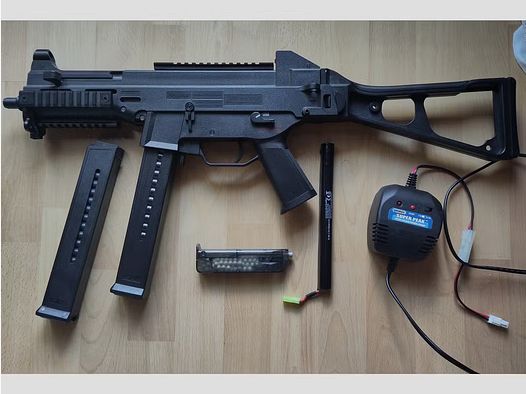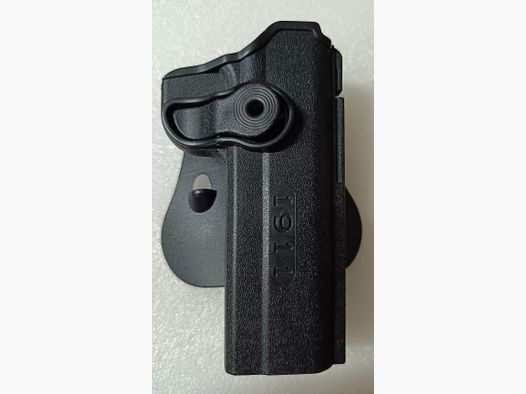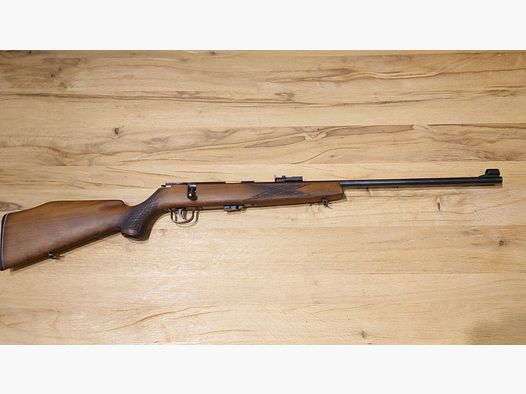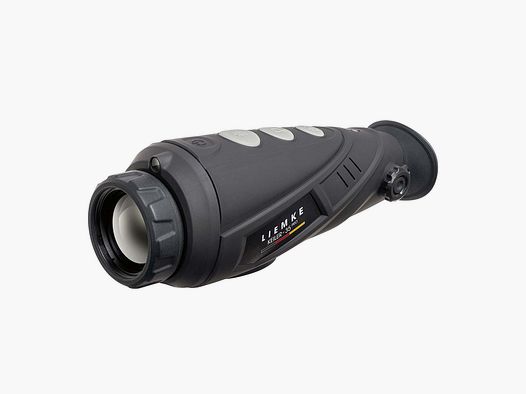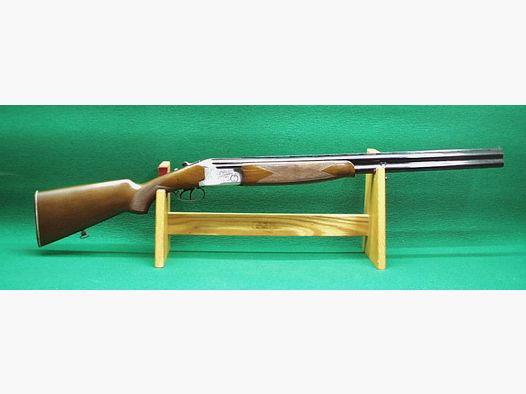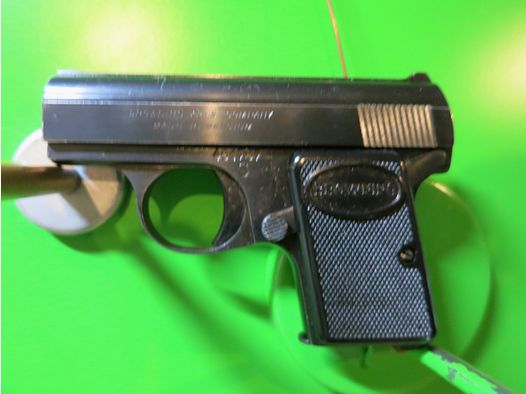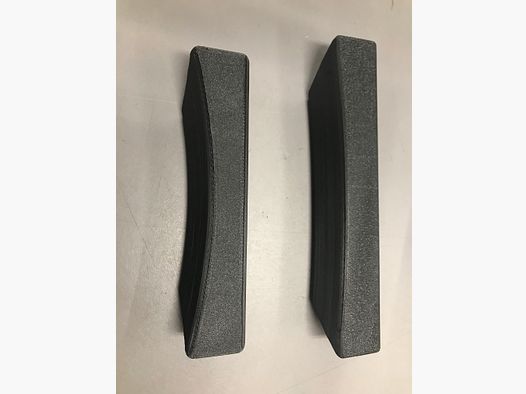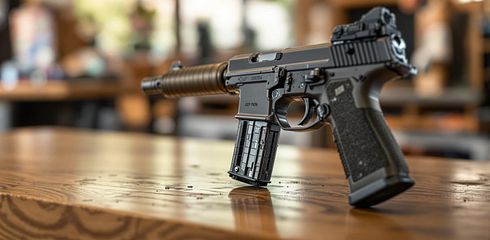The import of hunting equipment into Germany requires precise planning and compliance with legal requirements. Without the right documents, the process is not possible. Here are the most important points:
- Classification of Equipment: Determine which documents and permits are required.
- Country-specific Rules: Check the regulations of the country of origin.
- Personal Authorization: A valid German hunting license is mandatory.
- Translations and Certifications: Documents such as firearms ownership cards or CITES papers often need to be certified and translated.
- Document Organization: Prepare everything for customs and border controls.
Tip: Plan at least 2–3 weeks for translations and certifications to avoid delays. Documents should be archived for at least 5 years.
Legal Import of Weapons and Accessories from the USA
Preliminary Checks
Before you start the import process, you should clarify three important areas. These steps help avoid time, money, and potential legal issues. They are the foundation for a smooth process.
Check Equipment Classification
The correct classification of your equipment is crucial, as it determines which documents and permits are required. According to the German Weapons Act, equipment is categorized into different classes, each with specific requirements.
Special regulations apply to firearms. For rifles, pressure-bearing parts such as the barrel and the locking system are considered essential components of the weapon and must be serialized accordingly. Ammunition is subject to separate import regulations.
It is important to avoid prohibited weapons and ammunition. In Annex 2, Part 1 of the Weapons Act, you will find a list of items that are generally not allowed to be imported. This includes fully automatic firearms as well as magazines with a capacity of more than 20 rounds for pistols or 10 rounds for long guns.
Check Country-specific Regulations
Once the equipment is correctly classified, you should check the country-specific regulations. The country of origin of your hunting equipment can significantly influence the import process. National and international regulations play a role here. Contact the relevant authorities or chambers of commerce to ensure that you comply with all relevant requirements.
Check Personal Authorization
Your personal qualifications are also a central factor. A valid German hunting license is the most important proof that you are allowed to import weapons-related items. Make sure your hunting license is up to date and renew it in time if necessary.
For members of the US military, there are special regulations. They may have the opportunity to apply for a foreign hunting license under certain conditions.
Once you have carefully checked these three areas, you are well prepared to compile the necessary import documents.
Required Documents for Import
Once you have ensured that you possess all necessary permissions, you should have the following documents ready. These documents are crucial to prove the previously checked requirements and to process the import without delays. Here is an overview of the required papers:
Identification and Hunting Permissions
For identification, you need either a valid ID card or a passport. If you are coming from abroad and wish to hunt in Germany, you must also present a valid German foreign hunting license to meet the legal requirements in the area of weapons law.
Translation and Certification Requirements
Not all import documents need to be translated or certified, but for certain documents, it is mandatory. The German customs authorities and the Federal Office for Economic Affairs and Export Control (BAFA) often require a certified translation into German, especially for documents such as foreign firearms ownership cards, technical data sheets, or CITES documents. Here you will learn what requirements apply to these documents.
Certified Translations for Central Documents
For firearms ownership cards, hunting licenses, and technical data sheets, a certified translation is mandatory. These translations must be done by a publicly appointed and sworn translator. Translations without an official stamp and signature will not be accepted by the authorities.
CITES documents – for example, for ivory, certain leather products, or trophies – also require a certified translation. The costs for such translations typically range from €25 to €40 per page.
Certified Copies and Apostilles
For original documents such as hunting licenses or firearms ownership cards, you should never present the original but use a certified copy instead. You can have this made by a notary, which will cost you about €5 to €15 per document.
If the documents come from a non-EU country, an apostille is often additionally required. This international certification confirms the authenticity of the document and is issued by the competent authority in the country of origin. In Germany, this is usually the district or higher regional courts. The issuance takes about 5 to 10 working days and costs between €25 and €50.
Comparison: Translations and Certifications at a Glance
The following table shows the differences between the various procedures:
| Document Type | Purpose | Issuer | Cost | Processing Time |
|---|---|---|---|---|
| Certified Translation | Translation into German | Certified Translator | €25–40 per page | 3–7 working days |
| Certified Copy | Confirmation of conformity | Notary, municipal administration | €5–15 per document | Immediate to 2 days |
| Apostille | International certification | District Court, Higher Regional Court | €25–50 | 5–10 working days |
| Simple Translation | Not officially recognized translation | Freelance Translator | €15–25 per page | 1–3 working days |
Important Tip: Allow sufficient time – especially during the hunting season, there may be longer waiting times as certified translators are often very busy. For all certified documents, you should plan at least 2–3 weeks to avoid delays in import.
Shipping and Preparation for Border Controls
Transporting your hunting equipment across borders requires careful planning and the right shipping documents. Since weapons and ammunition must be declared at customs, it is crucial to prepare all documents completely and correctly. These steps build on the previously checked import documents and help avoid potential delays at the border.
Freight Forwarder and Shipping Documents
Clarify the requirements of your freight forwarder early on. This way, you can ensure that all necessary documents are available in time. Once your freight forwarder has met all requirements, you should organize and secure the documents properly. Well-organized documentation facilitates the entire shipping process.
Document Folder for Border Control
Create a clear folder with all important documents. This includes, among other things:
- Permits
- Customs declarations
- Any CITES documents
It is advisable to carry copies of the original documents as well. If the originals are damaged or lost, you will always have a backup. Additionally, it can be helpful to have the contact details of the relevant authorities on hand to respond quickly to questions or problems.
Contact Details of the Authorities
Knowing the right contacts is invaluable during a border control. Here are some important contacts you should note:
- Customs Matters: For general inquiries, contact the customs information center. For specific concerns regarding ongoing procedures, your local customs office can assist you.
- Weapons Law Permits: These are issued by municipal authorities, district administrations, or district police authorities. If you are not resident in Germany, the responsible authority is in the district where you wish to stay – e.g., for a hunt – or in the district where you will cross the border.
If problems arise during border control, immediately contact the relevant customs office on site. This way, you can quickly clarify any discrepancies and continue your journey.
sbb-itb-1cfd233
Obligations After Import
After the import, it is important to archive your documents carefully. Proper storage not only facilitates future official inspections but can also be of great benefit for future exports or official inquiries.
Document Storage for Future Requirements
In the field of foreign trade, there is an obligation to keep documents for at least five years after their validity expires. This regulation applies unless the return of the document is required beforehand.
Documents to be kept include, among others, import licenses, customs declarations, CITES permits, certified translations, invoices, and shipping papers. It is advisable to archive these documents chronologically and organized by equipment items. To avoid data loss, both the originals and digital copies should be stored securely and in separate locations.
If you plan to export your hunting equipment again or take it on trips at a later date, these documents can serve as proof of lawful import. They help avoid potential problems at border controls.
Conclusion
The import of hunting equipment requires careful planning and compliance with legal regulations. As this checklist shows, comprehensive documentation is crucial to ensure the process runs smoothly. Before your trip, be sure to obtain approval from the German weapons authorities.
Thorough preparation and timely submission of all required documents are essential. Allow sufficient time, as certified translations and apostilles are often not available on short notice. A structured approach – from classifying the equipment to properly archiving the documents – significantly increases the chances of success.
Are you looking for hunting equipment? On Gunfinder, you will find a wide selection of secure offers, both new and used items.
Don't forget to keep the documents for at least five years. This is not only legally required but also serves as a safeguard for future official inspections or further exports. Good documentation pays off in the long run.
FAQs
What documents do I need to import hunting equipment into Germany?
What documents are required for the import of hunting equipment into Germany?
If you want to bring hunting equipment into Germany, you should have some important documents ready. These include:
- Original and yellow copy of the WA import permit
- Firearms ownership card
- Customs declaration (Form 0350)
- Proof of import sales tax (19%)
- If necessary, additional permits for weapons and ammunition
If you are bringing weapons or ammunition specifically for hunting or shooting competitions, further permits may be necessary. It is advisable to inform yourself early about all relevant requirements to avoid problems or delays at customs. For more comprehensive information, you can use platforms like Gunfinder, which specialize in such topics.
How can I ensure that my hunting equipment is correctly classified to obtain all necessary permits?
To ensure that your hunting equipment is correctly classified, you should thoroughly familiarize yourself with the German weapons laws, especially the Weapons Act (WaffG). Important documents you will need include a valid hunting license or a firearms ownership card.
When importing your equipment, a special permit is required, which you must apply for at the relevant authority. Additionally, customs and import documents are necessary. These steps ensure that your equipment is correctly classified and that you receive all required permits in a timely manner.
Tip: Careful preparation can save you a lot of time and help avoid unnecessary problems during import.
How do I obtain certified translations and apostilles for import documents?
Certified Translations and Apostilles for Import Documents in Germany
If you need to submit import documents in Germany, you often require certified translations and apostilles. Here is the process for obtaining these:
- Translation: Have your documents translated into German by a certified translator. These translators are specifically authorized to confirm the accuracy and completeness of the translation.
- Apostille: Then, request an apostille for the original document or for the certified translation. You can obtain this from the relevant authority in Germany, depending on where the document was issued.
Keep in mind that fees may apply for both steps. Additionally, processing times vary from authority to authority. To avoid unnecessary delays, ensure that all required documents are submitted correctly and completely.



